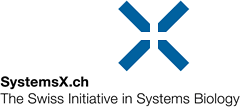PhosphoNet PPM
Personalized-Precision Medicine
Prostate cancer is the most frequent malignant and third most frequent fatal cancer in men. This project not only aims to establish a basis for better diagnosis of this disease, but also to develop more efficient therapy forms.
The project will address two well-defined and urgent clinical needs related to prostate cancer. The first is the need to discriminate between men who harbor clinically significant prostate cancer that threatens their life and those who do not, without resorting to prostate biopsy. The potential benefits in relation to this first challenge are half a million fewer unnecessary biopsies in the EU each year. The consequence of this would be a considerable reduction in over-diagnosis and over-treatment – the two most common errors in the management of early prostate cancer.
The second clinical need is to be able to discriminate between men who are likely to respond to novel therapeutic agents and men who are not, once they have entered the stage of castrate resistant prostate cancer, a common form of the disease that is difficult to treat effectively. The opportunity in relation to this second challenge is a more appropriate and more efficient treatment allocation, resulting in reduced harm and reduced cost, and a prolongation of life.
Match patients with optimal treatment options
Cancer is a complex disease in which multiple genomic alterations contribute to the observed phenotype, i.e. the uncontrolled growth of cells in a specific organ. Recent technological advances have made it possible to precisely identify the molecular changes that distinguish a cancer cell from a normal cell in general as well as in specific patients. Concurrently, a number of new therapeutic agents have been developed that are highly specific in targeting the molecular mechanisms that are dis-regulated in cancer cells.
In the project “PhosphoNet Personalized-Precision Medicine” we will use advanced genomic, proteomic and computational techniques to determine how genotypic variation changes the molecular patterns in the tissue of individual prostate cancer patients and to match each patient with optimal available treatment options.
| Principal Investigator | Prof. Ruedi Aebersold, Institute of Molecular Systems Biology (IMSB), ETH Zurich |
| Involved Institutions | ETH Zurich, University of Zurich, Cantonal Hospital of St. Gallen, Technische Universität Dresden |
| Number of Research Groups | 8 |
| Project Duration | Jan. 2013 – Dec. 2016 |
| Approved SystemsX.ch Funds | CHF 3 million |
Updated October 2013


